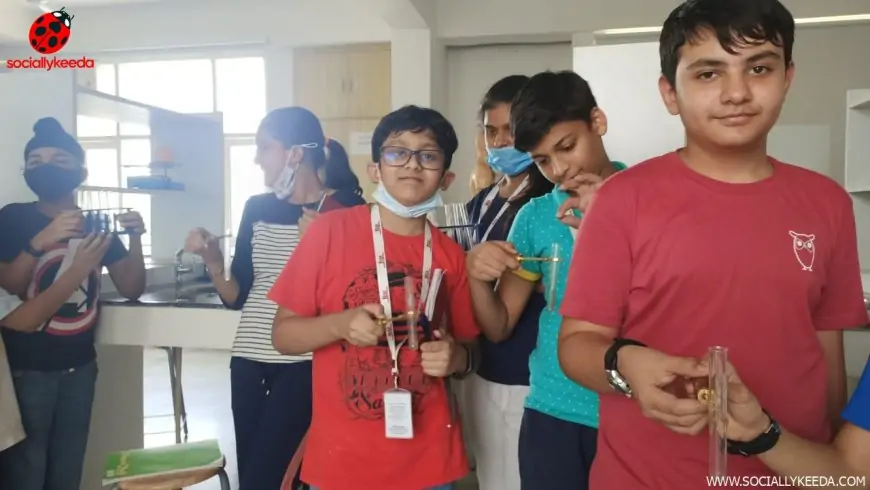Daniel Curry, Director & Principal, Vega Schools
School vacations are special times for children. As adults, we likely have fond memories of time spent on school breaks. The most memorable breaks involved doing something new or out of the ordinary. Fortunately, there are many ways to engage your child in the area of science. These include opportunities to experience science in the real world, which make learning fun and memorable.
Research the internet
Even nursery and kindergarten school students can engage in fun and easy science projects. Growing a plant or vegetable in a small planter can show even the smallest children the wonder and beauty of the natural world. A quick search on the internet can give you ideas for using hydroponics - water in a glass jar - with something like a potato suspended halfway. This creates a great visual for children to see sprouting.
Try an experiment or buy a kit
Many home projects require few ingredients and have amazing results. One classic is creating a volcano that actually erupts (needing baking soda and vinegar). A quick search can provide home activities for all ages - from nursery school to seniors. Older students are typically more interested in technology. A number of good kits are available for teaching basic robotics and allowing creativity and creation.
Visit a museum
Children should be encouraged to identify an area of interest and then given the support and freedom to pursue projects in that area. A trip to a science museum may provide inspiration for inquiry. To be effective in building interest, children must have a voice in the area and type of activity. Schools in Gurgaon that offer progressive education include ‘voice and choice’ to their learners as part of the educational program. Otherwise, one runs the risk of turning a child ‘off’ to science.
Science in nature and surroundings
Science is also for children loving the outdoors. Nature walks to identify the various flora and fauna of the area can spark interest in learning new things. Using glass to refract or focus the sunlight opens the door to appreciation for physics. Asking your child questions about what they see around them can be done anywhere - from pointing out airplanes and asking how they fly, to wondering about how skyscrapers are built, to questioning why things roll (or water runs) downhill.
Make science interesting by asking good questions
The ability to conduct research effectively is built through practice. If your child shows interest in the moon, for example, you can ask them to find out 5 interesting facts about the moon. By asking questions about their area of interest, they will give better effort in finding answers through research. Likely, they will dive deeper than you originally asked.
Build on interests and develop a creative mindset
By building on natural interests and developing a mindset of inquisitiveness and awareness of the world around them, we can strengthen good mental health and curiosity. Kids with good mental health are able to continue sharpening their minds while learning new things. They are more able to look outward and have a positive sense of their place in the world. Top schools in Gurgaon work to inculcate this curiosity and inquiry based problem solving method in their regular day to day approach to learning. Parents can play a big role in complementing the good work done by these schools.
For more information on the above subject, write to us at [email protected].







